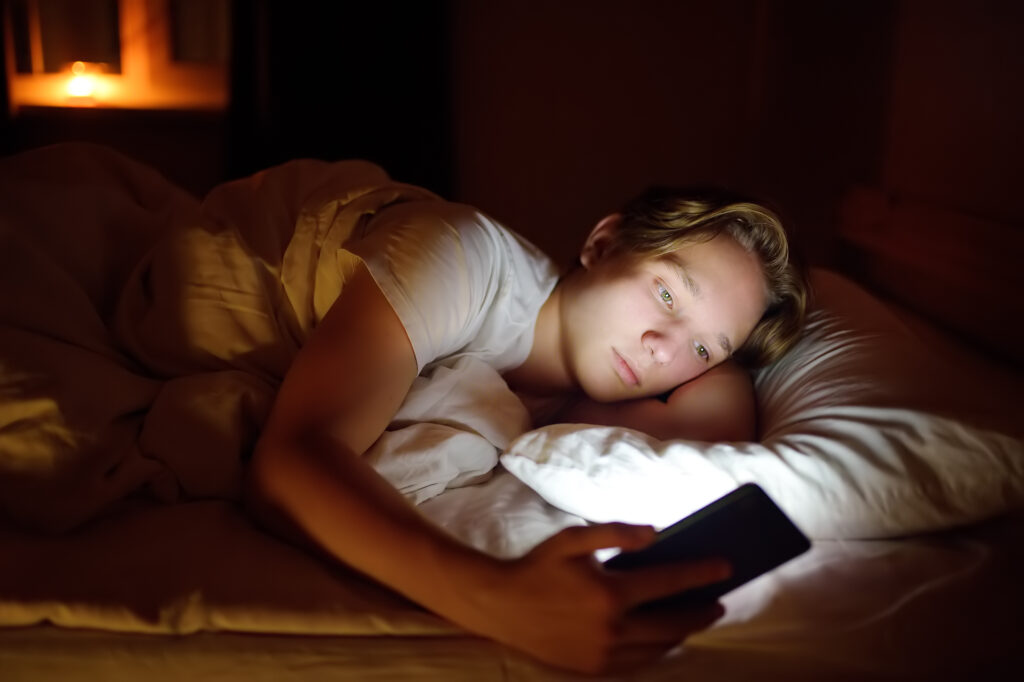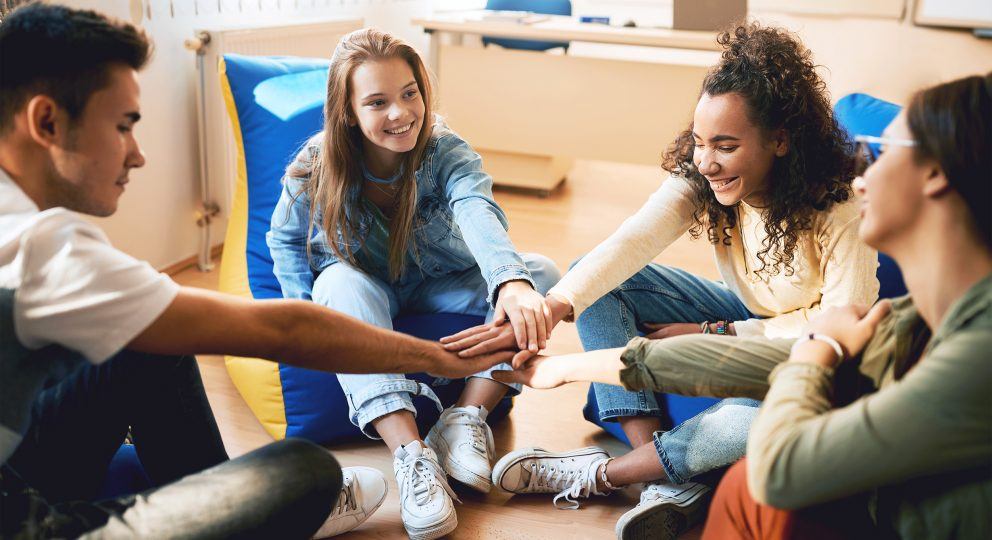Remember MTV, and the hours of time spent in front of the television (the one in my memory still had knobs, no remote) waiting to catch that one music video you wanted to see? The VJs and their amazing style, the game shows that we may or may not have been allowed to watch, the Spring Break performances and games, the absolute anticipation for that hour of TRL after school! The programming was a glimpse into the greater world around us that many of us were eager to emulate. It was our source of entertainment, news to an extent, and a slice of culture that had us glued to our couch cushions. For Gen X and Millennials, MTV was our social media.
Is social media just a new version of TV
Parents of 80s and 90s teens often couldn’t find the appeal when focusing on the music video culture. Excessive television consumption became a hot topic, with experts weighing in on long term effects on learning and social ramifications. Coupled with the surge in video gaming that took hold in the 80s and 90s, the millennial generation seemed doomed to become recluses, tied to their screens, never to venture outdoors again. But as usual, that generation grew up, and the artifacts of millennial teenage rebellion serve more as nostalgia, than a continued way of life.
So, bearing that in mind, perhaps parents of today’s teens can equate that social media is to their modern teen, what MTV was for them. If that is the case, parents of teens can begin to understand the appeal of social media spaces as places where teens turn for entertainment, news, and that slice of culture. It is also the place to connect with friends, family, and acquaintances, even when distance is an obstacle. On the heels of Covid, after leaning heavily on social media platforms to stay connected, teens can also feel great comfort in the connections they make through their phone screens.
At the same time, we do know that the beloved music videos of the 80s and 90s were at their worst, made for TV and regulated as such. The internet is a much different beast altogether, with many dark corners that we should all attempt to avoid. Social media platforms can and do harbor some very bad behavior that parents rightfully want to protect their teens against. There are so many social media sites that it often feels like by the time adults find out about one platform their teens are already on to the next one. Educating oneself about the type of sites available and the goal of those sites is the first step because social media changes as frequently as the habits of the teens using them.
But at what cost?
So, with all of these easily accessible apps available at the touch of a teens’ fingers, how do parents navigate creating safe spaces and communications around social media? We know that excessive exposure and use of social media sites contribute to lower self esteem, higher rates of depression and mental health struggles for teens. There are many articles highlighting the grim reality of too much time spent on social media. From cyberbullying to sharing too much information about themselves, to the dangers of interacting with strangers, parents know that they need to be a presence in their teens’ social media accounts.
What can parents do?
The statistics clearly indicate that too much social media impacts teens negatively. Regardless, teens are on it every day. So what can parents do to support their teens in positive behaviors?
Limit time on social media
-
If your teen is becoming consumed and needs time away from their phone or computer, work to create other activities for them. Bonus for both of you if the activities can be enjoyed together.
Support school policies
- Support school initiatives that call for phones to be off and away during school hours. Many parents are fearful of sending their child to school without a phone for communication. There may be good reason for this, but while in school, encourage your student to keep the phone off and out of sight. Schools have noted that social media is often used to promote violence, schedule fights or other unhealthy confrontations during school hours.
Set expectations
- Set the expectation that your teen sets their account to “private”. Having a public account increases chances that more people have access to your teen online.
Be your teen’s ‘friend’
- “Friend” your teen on social media. The reality is that many teens have more than one account on each platform. On instagram, it is common for teens to have 3 or more accounts to showcase their different interests. They may have one account where they “friend” their parents and other adults and other accounts that parents are unaware of.
Parental controls
- Take advantage of parental controls. More internet providers and apps are offering more parental controls all the time. Call your provider to find out what options you have for setting controls on your teens devices.
- When possible, keep computers in shared spaces. Or, face computer screens towards the doorway so you can open the door and easily see what is on the computer screen in your teen’s room. If phone consumption is an issue, create spaces for the phone to charge away from the teen’s room if needed.
Talk, talk, talk
- Talk, talk, talk… sure your teen may look like they are not listening or sometimes actually not be listening, but if you don’t talk about it, they won’t know your feelings about it. Talk open and honestly and often about the downsides of social media. To add balance, speak often and honestly about the lighter side of social media. Laugh alongside your teen at a funny video, or send them messages when you find something share worthy. By embracing the good side, your warnings about the bad side may be met with more understanding.
- Discuss the dangers of posting images online. Talk open and honestly about the digital footprint your teen may be leaving. Here is a quick resource lesson plan with a video for more information on the Digital Footprint.
Set an example
- If the goal is for your teen to spend less time engaging in social media content, engage less yourself as well. Hold family dinner times and request phones be off and away during that time. Watch a show or movie in the evening, or play a game. “Practice what you preach” goes a lot further than “do as I say, and not as I do”.
Discuss cyberbullying
-
Explain that consequences of circulating photos of other people or posting a video of a fight can be serious. As a middle school teacher, I witnessed several young people be questioned or detained by police after posting or forwarding content of other teens. Charges could include defamation, harassment, and/or sexual harassment, etc.
Encourage your teen to speak up
- Many teens do not want to tell on other kids. They may protect their friends even when they know they have done something wrong. Explicitly explain that participating in or even viewing illegal activity without reporting it can make them an accomplice to a crime.
Don’t believe everything you see, hear or read
- Reiterate this message often. People can create content that is totally fake or that reflects a reality that doesn’t exist. Many teens get caught up in coveting what looks to be a better lifestyle. Remind your teen that looks are deceiving and social media can be used for informational purposes, but it’s main function is for entertainment. It’s not real life; it is a creative space for performance and sharing.
Final thoughts
Consistent check-ins about social media consumption and open dialogue with your teen is important. Using a framework of expectations, boundaries, and consequences will help set the tone for social media usage in your home. Try to create balance by finding the joy and the good in social media with your teen. Follow some of the same content creators if you feel they provide a positive message. Speak often and honestly about what you feel is dangerous content or unhealthy online behavior. Reinforce the good while addressing the bad. It is no easy task to navigate social media with your teen. Adults also struggle to be kind and decent on the social media as they hide behind a screen.
But perhaps, with knowledge, information, and strong support at home, our teens will learn to filter out the noise and enjoy the videos of dogs doing tricks, or young entrepreneurs sharing makeup tutorials. Possibly, there is as much good out there as there is bad. Finding the balance is the challenge and one teens and parents should navigate together.










